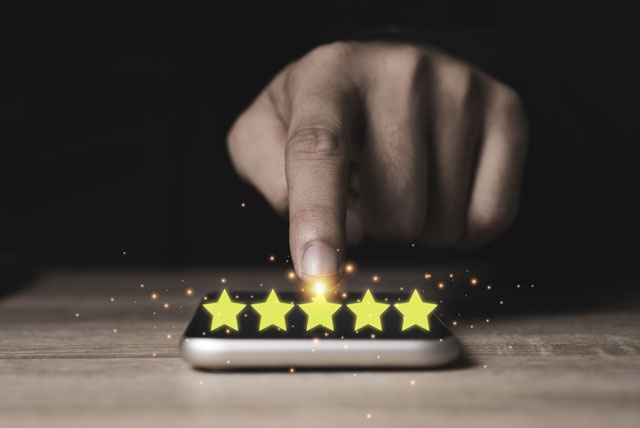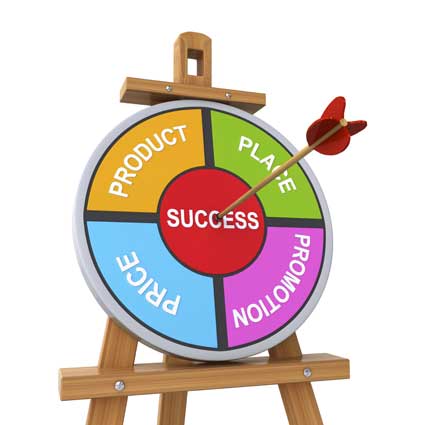A cocktail party is a social gathering after work hours, which includes drinks, light refreshments, and an intimate guest list. Guests are encouraged to mingle and have conversation in a relaxing environment that allows for interaction outside of work.
Cocktail parties are an opportunity for both entertaining and networking. Like other events in your work life, how you conduct yourself plays a role in how you build relationships, and in how you are perceived. Cocktail parties and entertaining guests are common elements of business networking, socializing, and celebrating. The success of the event relies on proper cocktail party etiquette.
Parties are held for several reasons:
-
To show your company's gratitude for previous work.
-
To forge relationships and to develop future business.
-
To allow for relaxed decision-making outside of the office environment.
During cocktail parties:
-
Treat every guest as they are the reason you are holding the party.
-
Everyone should be treated as a VIP.
-
Be aware of the political and social climate of your workplace.
-
Always use proper business etiquette and cocktail party etiquette to ensure the event is managed on a professional level. The event will reflect on you, if you are the host. Monitor the responses and visual cues of your leadership and bosses while they attend the event, to mitigate any unforeseen issues.
Cocktail party definitions:
-
A cocktail reception usually precedes another evening engagement. Cocktail receptions are the most formal of the three types of cocktail parties and are usually reserved for making significant announcements, honoring a guest, or celebrating an important event. Business, professional, or formal dress is required.
-
By definition, a cocktail party is typically around two hours long. It generally begins after 5 p.m., and ends before 7:30 p.m. Dress is casual or formal, based on the invitation you send. Dinner is not served at a cocktail party, although finger foods and hors d'oeuvres are expected. A full bar is standard at a cocktail party. This is generally an opportunity to mingle casually, and not for a formal event, such as a retirement.
-
A cocktail buffet is typically held between 6 p.m. and 9 p.m. and during the business week. A buffet dinner is served, allowing guests to mingle, discuss business, or announce a new initiative. A cocktail buffet requires business dress and should be indicated on the invitation.
If you are the host, use these tips to ensure a smooth and successful event:
When you invite your business colleagues, bosses, and clients to your home, you want the experience to be enjoyable and memorable in a positive way. Here are the overarching basics:
-
Always wear a smile and mingle with confidence.
-
Mingle with the entire room, and do not show favoritism to one select area.
-
Address each individual by name, shake their hand, and look them in the eye.
-
If there are special quests or dignitaries, make a point to visit them and acknowledge them but, as stated before, do not hover in the same area, so the other guests feel neglected.
-
If you are serving alcohol, monitor your guests and keep a radar out for any issues.
-
If you are drinking alcohol, be cautious of your intake to prevent impaired decision making. Remember, you want to leave the event on good terms and expand your networking. You do not want to leave after experiencing a negative event and wonder what co-workers, clients, and your boss think of your behavior.
When planning your event
-
Stay organized throughout the planning process.
-
Plan a minimum of 45 to 60 days ahead.
-
Determine a budget for the event, developing costs for all of the items listed here.
-
Determine the style and theme for decorations.
-
Determine a buffet meal or place setting.
-
Develop the menu, including a variety of finger foods.
-
Hire bartenders and servers. Rule of thumb is that one bartender can serve between 20 and 30 people. Each guest will consume three beverages. If the party is larger, hire two bartenders and locate each at separate bar areas. Always have nonalcoholic drinks available at the bar.
-
Purchase the decorations and supplies.
-
Rent needed tents, tables, and chairs.
-
Provide directions, maps, and parking instructions in your invitations.
-
Two to three weeks in advance, mail the invitations.
-
Make sure the invitations include who, what, where, when, and why. The time is most crucial.
Interested in learning more? Why not take an online Business Etiquette course?
-
Determine the location.
-
Develop your guest list and print invitations.
-
Determine attire for the event. Do you want formal, semi-formal, or business casual? Formal requires a "black tie." Semi-formal is black-tie optional. Business Casual includes slacks, sport coats, skirts, or pants.
-
Manage RSVPs and call a week before the event, if you have not heard from guests who were sent invitations. This will help you obtain an accurate count of guests.
A week before the event
-
Check your supplies to make sure they have arrived.
-
Verify the number of guests, based on RSVPs.
-
Verify and finalize catering and food orders.
The week of the event
-
Finalize the RSVPs.
-
Order any flower arrangements.
The day before the event
-
Clean the venue, whether it is your house or rented location.
-
Coordinate last-minute arrangements with the caterer.
-
Put away valuable or breakable items.
-
Call any guests who have not responded.
-
Ask for help, if you need it.
-
Order additional beverages or ice.
The day of the event
-
Visualize the event in your mind.
-
Take care of last-minute details.
-
Greet your guests by shaking their hands and saying, "Welcome, thank you for joining us."
-
Introduce guests to one another.
-
Show your guests to drinks and refreshments.
Acting as host, emcee, or master of ceremonies
Hosting a formal event may require you to multi task with your guests. You may be required to perform different functions. Your main function is to mingle with your guests. You may also be required to announce and introduce speakers, offer toasts, and act as the master of ceremonies.
Making and receiving a toast
The host should propose the first toast (a welcome toast) to begin the evening. You should propose a toast relating to the reason for the event. After the toast, thank everyone for their attendance.
Meals and entertaining
If you have decided on a buffet style meal, it is proper to indicate to guests when the buffet will start. Buffets are a great opportunity to allow guests to mingle. Make sure you have plates and silverware in an easily accessible location, and let your guests help themselves.
-
Maintain a suitable traffic pattern for your guests by separating the bar away from the buffet table to prevent congestion.
-
Organize menu items in a logical flow -- salads, main courses, and then desserts.
-
Be sure to have backup serving dishes of each menu item, so they can be replenished as consumed.
-
As the host, you are the leader. You are responsible for the flow of the evening and a toast, if warranted. Toast to the event, or simply thank your guests for attending.
-
Time any planned entertainment for during the meal, and any activities for after everyone has eaten.
Ending the party
Maintain proper etiquette when ending a party. It may be difficult to determine optimal timing to end your event, and determine when to dismiss your guests.
-
A common rule of thumb is that a party should be over an hour after dessert is finished.
-
If guests do not begin to leave in a reasonable amount of time, use subtle hints. An example is, "This has been a great evening, I would like to thank you for coming."
-
Thank all of your guests as they leave. Be cautious of those who may have consumed too much alcohol. Offer them a cab, or determine if they can ride with another guest. You are responsible for their safety.
If you are attending the cocktail party, but are not the host
If you receive an invitation and are attending a cocktail party, but you are not the host, you will have a much less difficult role. Attending cocktail parties can be very enjoyable, as well as an opportunity for you to network and celebrate something special with co-workers, colleagues, and friends. Although your role will be much easier, since you are not the host, there are several etiquette principles you must adhere to.
-
Review your invitation to make sure you have the details correct (i.e. date, time, location).
-
Determine proper attire. Based on whether it is a cocktail party, cocktail buffet, or cocktail reception, you will need to establish dress accordingly. What you are wearing is key to your first impression, so make sure you choose appropriately.
-
Attire may include business formal, business professional, or business casual. If the invitation states "business casual," you want to avoid too casual. You never want to be under-dressed.
-
Remember the purpose of the event. Your main goals should not be free food and free alcohol, but a focus on the opportunity for a social event where you can socialize, meet new people, and network. It is a good idea to eat before you go. This will keep you focused on the purpose, and help prevent alcohol consumption on an empty stomach.
-
Arrive on time for the event based on the invitation: not fashionably late, early, or late.
-
It is acceptable to bring a small gift, such as a bottle of wine.
-
Be in the proper mind frame to be successful at a cocktail party. Be confident and outgoing but not too assertive when you enter the party.
-
Address individuals by looking them in the eye, shaking their hand and clearly stating your name.
-
Bring business cards and keep them handy for dispersing.
-
When exchanging business cards, make sure that yours can be read by the person accepting it. When you accept a card, make sure to note the individual's title, company, etc. This can offer topics for discussion.
-
Mingle with other guests. Try to mix with people other than your close friends and be pleasant, cheerful, and upbeat when mingling, no matter what your mood. There are plenty of conversation topics to choose from that are non-confrontational, such as travel, films, or books.
-
If you smoke, be considerate and go outside to smoke, away from the nonsmoking guests.
-
Remember to be cautious of your alcohol intake to prevent uncomfortable events.
-
If you do something uncomfortable during the event, call or send a note of apology. Everyone can make mistakes.
-
Remember to thank your host for inviting you and follow up after the event with a thank you card.
Food and drink tips
-
Be respectful and cognizant of your look.
-
Always hold your drink in your left hand. This will keep your right hand dry and free for shaking others when you meet.
-
Never overfill your plate. No one will notice you going back for seconds, so do so and remain looking professional.
-
Always keep your fingers clean. Chose foods on a toothpick or ones that may be eaten with a fork. Keep a napkin handy.
-
Although a food may be served on a toothpick, do not use it to remove food from your teeth. Dismiss yourself and remove the food privately or in a restroom mirror.
-
Never litter, and always place items back on the serving tray.
-
When eating olives, do so by taking small bites and placing the pit on your plate.
-
Test the temperature of hors d'oeuvres first to avoid burning yourself.
-
Be careful biting into items such as tomatoes or other fruits to avoid spraying yourself or others within reach.
-
If you find an item that is unpleasant, place it in your napkin and dispose of it.
Summary, reminders, and takeaways
Planning for a cocktail party is a significant undertaking, which will be successful based on the level of planning you do. Cocktail parties are an opportunity for both entertaining and networking. Like other events in your work life, how you conduct yourself plays a role in how you build relationships, and in how you are perceived. When you invite your business colleagues, bosses, and clients to your home, you want the experience to be enjoyable and memorable in a positive way.
































